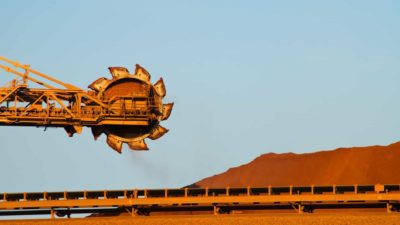The trouble with buying into "junior" mining companies is that your money could turn into $0 just as well as it could deliver you a massive windfall.
Their future prospects are entirely dependent on finding a reserve in the ground of whatever mineral they're looking for.
But what if you can grab a mining share just as it has found something, but before the rest of the world has woken up?
Datt Capital chief investment officer Emanuel Datt may well have found a stock in that situation:
Only 3 mines on the planet produce this valuable mineral
The WA1 Resources Ltd (ASX: WA1) share price started this year at $1.60.
It has since rocketed 318% to close Monday at $5.83.
What's the catalyst? It has found a source of niobium.
According to Datt, niobium is "a future-facing, extremely rare critical mineral".
"Prices for niobium are relatively high at circa US$45,000 a tonne, reflecting the scarcity of the mineral," he said.
"WA1 has potentially made a tier-1 niobium discovery in the remote Arunta region of WA."
The find is stunning because currently, only three mines in the entire world extract niobium.
"Two major mines [are] in Brazil, albeit under full or partial Chinese ownership, and dominated by the giant Araxa deposit."
The element, with attributes similar to nickel, is used to make high-strength, low-allow (HSLA) steel.
HSLA steel can get away with a lower weight for the same amount of strength compared to conventional steel.
The material, according to Datt, was used to make the massive Oresund Bridge that connects Denmark and Sweden.
Ready for a Godfather offer
The opportunity for WA1 Resources is huge.
"The use of niobium in steel has primarily, we believe, been constrained by the supply of niobium concentrated in the hands of small private companies," said Datt.
"New supply is essential to increase the penetration rate of niobium usage in steel production."
Niobium, he added, would "bring significant reductions to construction costs and scope three emissions regarding climate change targets, including electric vehicle batteries".
There is high potential that a large mining company buys WA1 Resources' niobium asset.
"Particularly amongst the iron ore producers, given existing marketing networks could be utilised to quickly increase the market penetration of niobium into the steel market," said Datt.
"In addition, a potential X factor could be the commercialisation of niobium batteries, which are demonstrating vastly superior outcomes versus present battery technologies albeit at the laboratory level."









